University of Oldenburg
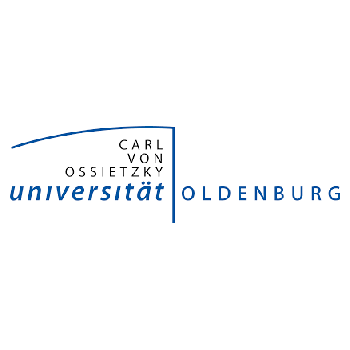
Founded: 1973
Address: Ammerländer Heerstraße 114 - 118 - Oldenburg, Germany
Phone: +49441 7985452
Address: Ammerländer Heerstraße 114 - 118 - Oldenburg, Germany
Phone: +49441 7985452
Here you find out University of Oldenburg complete information about fees, location, degree University of Oldenburg offers, number, website, and much more. University of Oldenburg is a leading university in Oldenburg - Germany.
You can also find out jobs at University of Oldenburg for students, teachers, and professors. We also update the database for an internship at University of Oldenburg for students.
The Carl von Ossietzky University of Oldenburg was founded in 1973, making it one of Germany‘s young universities. Its goal is to find answers to the major challenges society faces in the 21st century – through interdisciplinary, cuttingedge research.
The pathways on the Oldenburg campus are short: the University‘s academic staff and administrative staff work closely together, using... an interdisciplinary approach. Many are integrated into special research areas, research groups and European clusters of excellence.
The University cooperates closely with more than 200 other universities worldwide and is also affiliated with non-university institutes in the areas of research, education, culture and business.
The University of Oldenburg is preparing over 13,700 students for professional life. It offers a broad range of disciplines, from language studies, cultural studies and the humanities to educational sciences, art and musicology, the economic and social sciences, mathematics, computer science, the natural sciences and the new medicine and health science programmes established in 2012.
In recent years, the University of Oldenburg has developed a targeted strategy for the expansion of existing research strengths to fully exploit and open up further research potential, leading to an increased national and international visibility of the University of Oldenburg.
Based on criteria that evolved as a national and international assessment standard, the University has agreed on the following key topics for research and teaching:
The guiding theme Environment and Sustainability combines questions and methods of natural and social sciences and sociology with the declared aim to develop forward-looking solutions for a reflected, responsible and efficient use of the resources of our planet. It brings together the priorities of biodiversity and marine sciences, sustainability and energies of the future.
The research focus on biodiversity and marine science originated from the combination of the expert knowledge at the Institute of Biology and Environmental Sciences (IBU) and the Institute for Chemistry and Biology of the Marine Environment (ICBM). The strength of the IBU relates to its research on functional, physiological, sensory and genetic adaptations to variations in environmental conditions. The ICBM is renowned for its interdisciplinary marine environmental focus on biogeochemistry, fluxes of matter and energy and the functional role of biodiversity in ecosystems. Biodiversity research deals with the adaptive capacity of organisms, including the basic genetic processes, the analysis of interactions and coexistence mechanisms among organisms, as well as changes in biodiversity and resulting implications for ecosystem functions. Using empirical and theoretical approaches, we study the evolutionary and ecological processes governing patterns of terrestrial and marine biodiversity and their dynamics in times of rapid global change. The synthesis of terrestrial and marine biodiversity research is a unique feature at our university, which is also reflected in the collaborative research project BEFmate of the universities Oldenburg (IBU, ICBM) and Göttingen.
A pronounced interdisciplinary approach characterizes the marine sciences in Oldenburg, combining biological, geochemical, physical and modeling studies. The systems analysis of the Wadden Sea, a model region for other coastal areas, has provided a unique baseline for coastal research in Oldenburg. In addition, researchers of the ICBM study deep sea and ocean ecology with the newly constructed research vessel “Sonne”, which is based in Wilhelmshaven. Particularly noteworthy is the Transregio SFB51 with its focus on the functional role of the marine Roseobacter bacteria, but also other projects that address the consequences of global environmental change.
Marine research is conducted at the university locations Oldenburg and Wilhelmshaven, the latter with 5 ICBM research groups. Several boats, a unique data logging facility in the Wadden Sea, and an outstanding infrastructure for chemical analytics, molecular biology and experimental environmental studies offer a unique research environment. We aim at a higher integration with extra-faculty research institutions; currently there are 4 joint professorships. In the future, cooperations with social-ecological research groups should be encouraged. In the long run, we aim at establishing a common regional research area in the Northwest, including the universities Bremen and Groningen (NL).
This research area, which is framed by a Cultural Studies-oriented perspective, examines forms of diversity (cultural, social, religious, gender, etc.) in a variety of contemporary and historical contexts. It analyzes the processes of establishing historically and culturally specific orders of belonging and difference through cultural practices and forms of expression in pluralized societies. Apart from analyzing the culturally and historically different aesthetics of these practices and forms of expression, the research area also sheds light on the modes of their distribution as well as on their potential functions in processes of individual and collective identity formation within (and as a transgression of) these orders of belonging and difference. Moreover, in close connection to this perspective on diversity, the research area also focuses on the preconditions, media, and technologies of societal participation, particularly addressing both the normative dimension and the historicity of the concept of participation.
A range of third party-funded projects is situated in this research area (e.g. the PhD Program „Cultures of Participation“; two Helene-Lange PhD Programs, i.e. „Identity Constructions of Adolescents in a Post-Socialist Society of Transformation: The Case of Belarus“ and „Queer Studies and Intermediality“; research projects e.g. on „Gender Knowledge in and between the Disciplines“, on „Freiheitsraum Reformation“, on the history of ideas, and on editing the works of Karl Jaspers). Moreover, the research area is characterized by an dense international network of partners, e.g. through the cooperation with the Federal Institute for Culture and History of the Germans in Eastern Europe (BKGE), or through the activities of DIVERSITAS network (with India and South Africa). In the future, these networking activities as well as joint research initiatives within the research area should be further encouraged and extended.
You can also find out jobs at University of Oldenburg for students, teachers, and professors. We also update the database for an internship at University of Oldenburg for students.
The Carl von Ossietzky University of Oldenburg was founded in 1973, making it one of Germany‘s young universities. Its goal is to find answers to the major challenges society faces in the 21st century – through interdisciplinary, cuttingedge research.
The pathways on the Oldenburg campus are short: the University‘s academic staff and administrative staff work closely together, using... an interdisciplinary approach. Many are integrated into special research areas, research groups and European clusters of excellence.
The University cooperates closely with more than 200 other universities worldwide and is also affiliated with non-university institutes in the areas of research, education, culture and business.
The University of Oldenburg is preparing over 13,700 students for professional life. It offers a broad range of disciplines, from language studies, cultural studies and the humanities to educational sciences, art and musicology, the economic and social sciences, mathematics, computer science, the natural sciences and the new medicine and health science programmes established in 2012.
In recent years, the University of Oldenburg has developed a targeted strategy for the expansion of existing research strengths to fully exploit and open up further research potential, leading to an increased national and international visibility of the University of Oldenburg.
Based on criteria that evolved as a national and international assessment standard, the University has agreed on the following key topics for research and teaching:
The guiding theme Environment and Sustainability combines questions and methods of natural and social sciences and sociology with the declared aim to develop forward-looking solutions for a reflected, responsible and efficient use of the resources of our planet. It brings together the priorities of biodiversity and marine sciences, sustainability and energies of the future.
The research focus on biodiversity and marine science originated from the combination of the expert knowledge at the Institute of Biology and Environmental Sciences (IBU) and the Institute for Chemistry and Biology of the Marine Environment (ICBM). The strength of the IBU relates to its research on functional, physiological, sensory and genetic adaptations to variations in environmental conditions. The ICBM is renowned for its interdisciplinary marine environmental focus on biogeochemistry, fluxes of matter and energy and the functional role of biodiversity in ecosystems. Biodiversity research deals with the adaptive capacity of organisms, including the basic genetic processes, the analysis of interactions and coexistence mechanisms among organisms, as well as changes in biodiversity and resulting implications for ecosystem functions. Using empirical and theoretical approaches, we study the evolutionary and ecological processes governing patterns of terrestrial and marine biodiversity and their dynamics in times of rapid global change. The synthesis of terrestrial and marine biodiversity research is a unique feature at our university, which is also reflected in the collaborative research project BEFmate of the universities Oldenburg (IBU, ICBM) and Göttingen.
A pronounced interdisciplinary approach characterizes the marine sciences in Oldenburg, combining biological, geochemical, physical and modeling studies. The systems analysis of the Wadden Sea, a model region for other coastal areas, has provided a unique baseline for coastal research in Oldenburg. In addition, researchers of the ICBM study deep sea and ocean ecology with the newly constructed research vessel “Sonne”, which is based in Wilhelmshaven. Particularly noteworthy is the Transregio SFB51 with its focus on the functional role of the marine Roseobacter bacteria, but also other projects that address the consequences of global environmental change.
Marine research is conducted at the university locations Oldenburg and Wilhelmshaven, the latter with 5 ICBM research groups. Several boats, a unique data logging facility in the Wadden Sea, and an outstanding infrastructure for chemical analytics, molecular biology and experimental environmental studies offer a unique research environment. We aim at a higher integration with extra-faculty research institutions; currently there are 4 joint professorships. In the future, cooperations with social-ecological research groups should be encouraged. In the long run, we aim at establishing a common regional research area in the Northwest, including the universities Bremen and Groningen (NL).
This research area, which is framed by a Cultural Studies-oriented perspective, examines forms of diversity (cultural, social, religious, gender, etc.) in a variety of contemporary and historical contexts. It analyzes the processes of establishing historically and culturally specific orders of belonging and difference through cultural practices and forms of expression in pluralized societies. Apart from analyzing the culturally and historically different aesthetics of these practices and forms of expression, the research area also sheds light on the modes of their distribution as well as on their potential functions in processes of individual and collective identity formation within (and as a transgression of) these orders of belonging and difference. Moreover, in close connection to this perspective on diversity, the research area also focuses on the preconditions, media, and technologies of societal participation, particularly addressing both the normative dimension and the historicity of the concept of participation.
A range of third party-funded projects is situated in this research area (e.g. the PhD Program „Cultures of Participation“; two Helene-Lange PhD Programs, i.e. „Identity Constructions of Adolescents in a Post-Socialist Society of Transformation: The Case of Belarus“ and „Queer Studies and Intermediality“; research projects e.g. on „Gender Knowledge in and between the Disciplines“, on „Freiheitsraum Reformation“, on the history of ideas, and on editing the works of Karl Jaspers). Moreover, the research area is characterized by an dense international network of partners, e.g. through the cooperation with the Federal Institute for Culture and History of the Germans in Eastern Europe (BKGE), or through the activities of DIVERSITAS network (with India and South Africa). In the future, these networking activities as well as joint research initiatives within the research area should be further encouraged and extended.
Read More
Details:
LeaderShip: President: Prof. Dr. Dr. Hans Michael Piper
Fees:
Time:
Phone Number: +49441 7985452
City: Oldenburg
Fees:
Time:
Phone Number: +49441 7985452
City: Oldenburg
Timing:
Country: Germany
Staff:
Website: http://www.uni-oldenburg.de
Country: Germany
Staff:
Website: http://www.uni-oldenburg.de
Subjects:
Jobs in University of Oldenburg
Currently, there is no job opening in University of Oldenburg as per our database.

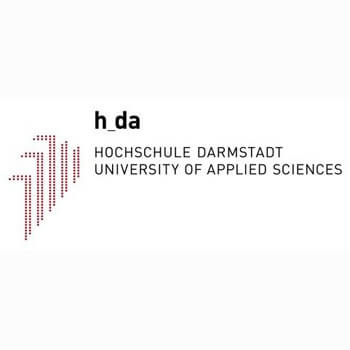
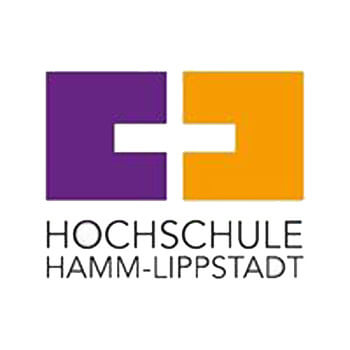
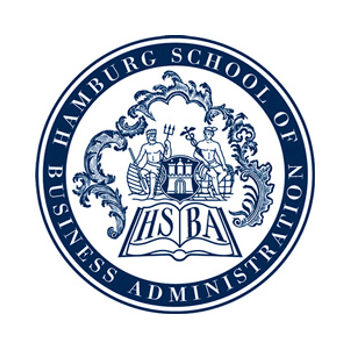




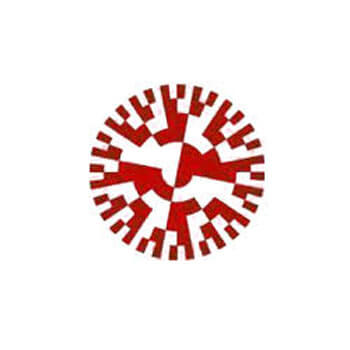










Leave a Reply